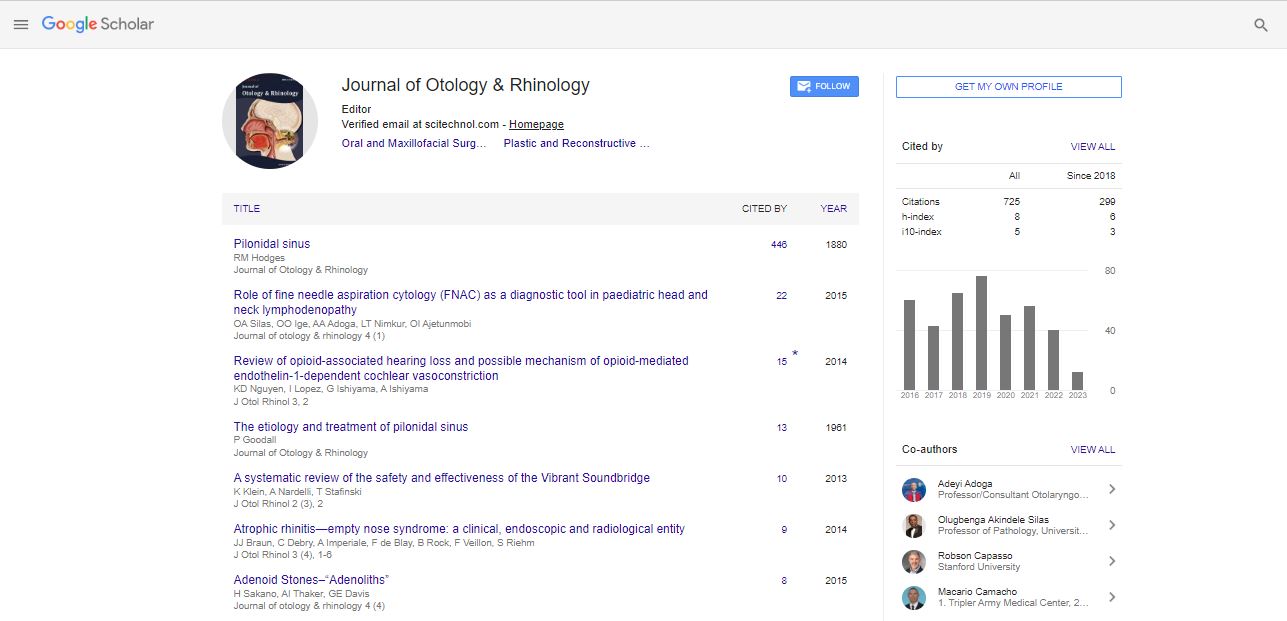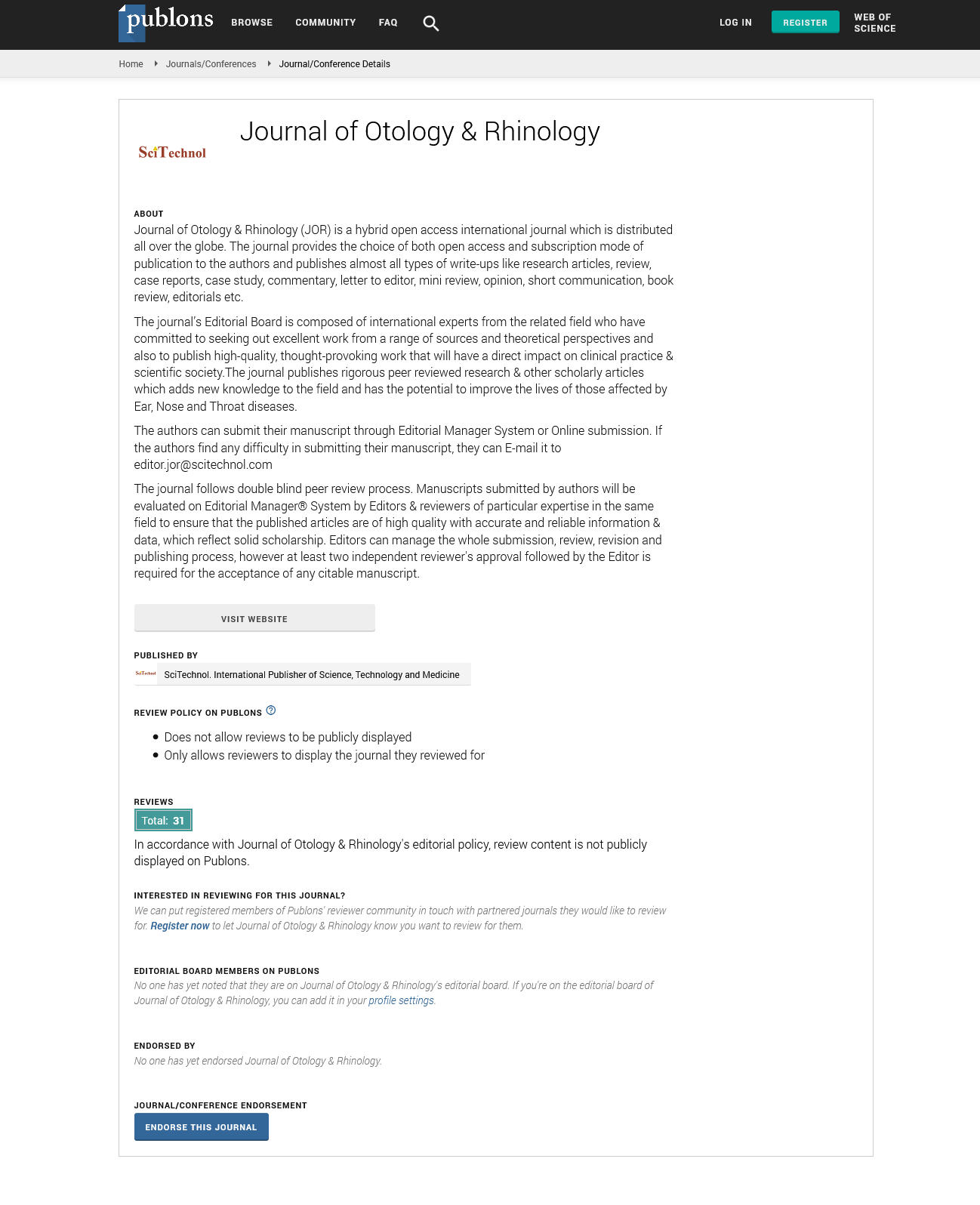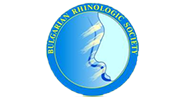Perspective, J Otol Rhinol Vol: 12 Issue: 3
Polypharmacy and ENT Health in Geriatric Patients
Takuya Imanaka*
1Department of General Internal Medicine, Takatsuki General Hospital, Osaka, Japan
*Corresponding Author: Takuya Imanaka,
Department of General Internal Medicine,
Takatsuki General Hospital, Osaka, Japan
E-mail: imanakatakuya@gmail.com
Received date: 21 April, 2023, Manuscript No. JOR-23-102337;
Editor assigned date: 24 April, 2023, PreQC No. JOR-23-102337 (PQ);
Reviewed date: 08 May, 2023, QC No. JOR-23-102337;
Revised date: 15 May, 2023, Manuscript No. JOR-23-102337 (R);
Published date: 22 May, 2023, DOI: 10.4172/2324-8785.100056
Citation: Imanaka T (2023) Polypharmacy and ENT Health in Geriatric Patients. J Otol Rhinol 12:3.
Description
Geriatric otorhinolaryngology is a specialized branch of medicine that focuses on diagnosing, treating, and managing Ear, Nose, and Throat (ENT) conditions in elderly individuals. As people age, they become more susceptible to various ENT disorders, which can significantly impact their quality of life.
Common ENT conditions in the geriatric population
Age-related hearing loss: Age-related hearing loss, also known as presbycusis, is a prevalent condition in the elderly population. It occurs due to the natural aging process and is characterized by a gradual decline in hearing ability. Factors such as genetics, noise exposure, and medical conditions can contribute to presbycusis. Diagnosis involves comprehensive audiological assessments, and treatment options may include hearing aids, assistive listening devices, and auditory rehabilitation programs.
Dysphagia: Dysphagia refers to swallowing difficulties, which are common among older adults. Aging-related changes in the swallowing mechanism can lead to problems in the oral, pharyngeal, or esophageal phases of swallowing. Dysphagia can result in malnutrition, dehydration, aspiration pneumonia, and reduced quality of life. Evaluation of dysphagia involves clinical assessments, imaging studies, and endoscopic procedures. Management strategies may include dietary modifications, swallowing exercises, and, in some cases, surgical interventions.
Unique challenges in geriatric otorhinolaryngology
Age-related anatomical and physiological changes: The aging process brings about various anatomical and physiological changes that can impact the ENT health of older adults. Decline in sensory functions, such as reduced taste and smell sensitivity, can affect appetite and nutrition. Tissue degeneration and loss of elasticity in the larynx and vocal cords can lead to voice changes and increased vulnerability to laryngeal pathologies.
Polypharmacy and its implications: Elderly individuals often take multiple medications to manage their health conditions, leading to polypharmacy. Medications can have side effects that affect ENT health, such as causing dry mouth, which increases the risk of dental problems and oral infections. Additionally, drug interactions can occur, potentially impacting the effectiveness of ENT treatments and interventions.
Comprehensive assessment and management strategies
Comprehensive geriatric assessment: In geriatric otorhinolaryngology, a comprehensive geriatric assessment is crucial for evaluating the overall health and well-being of older adults. This holistic approach takes into account physical, cognitive, functional, and psychosocial aspects. It helps identify comorbidities, functional impairments, and treatment goals, enabling a personalized management plan that considers the specific needs and preferences of each patient.
Interdisciplinary collaboration: Providing optimal care for geriatric ENT patients often requires collaboration among various healthcare professionals. A multidisciplinary team, including otolaryngologists, audiologists, speech therapists, and geriatricians, can work together to address the complex needs of older adults. Coordinated management ensures a comprehensive approach, resulting in improved outcomes and better patient satisfaction..
Geriatric otorhinolaryngology plays a crucial role in addressing the unique needs of older adults with ear, nose, and throat conditions. By understanding the specific challenges faced by the aging population, healthcare professionals can provide targeted, evidence-based care to enhance their overall well-being. Through comprehensive assessments, interdisciplinary collaboration, and patient-centered approaches, geriatric otorhinolaryngology aims to improve the quality of life for elderly individuals by effectively managing their ENT conditions. With continued research and advancements in the field, specialized care for geriatric otorhinolaryngology will continue to evolve, ensuring that older adults receive the best possible treatment and support for their ear, nose, and throat health.
 Spanish
Spanish  Chinese
Chinese  Russian
Russian  German
German  French
French  Japanese
Japanese  Portuguese
Portuguese  Hindi
Hindi 


